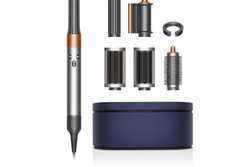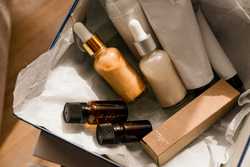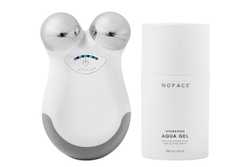- Size: 1.7 ounces
- Skin type: All, including sensitive
- Dosage: 1-2 times per week
- Key ingredients: Pro-retinol, pro-xylane, hyaluronic acid, vitamin C
- Price on publish: $20.99
Best Retinol Creams and Serums for Your Skin Concerns
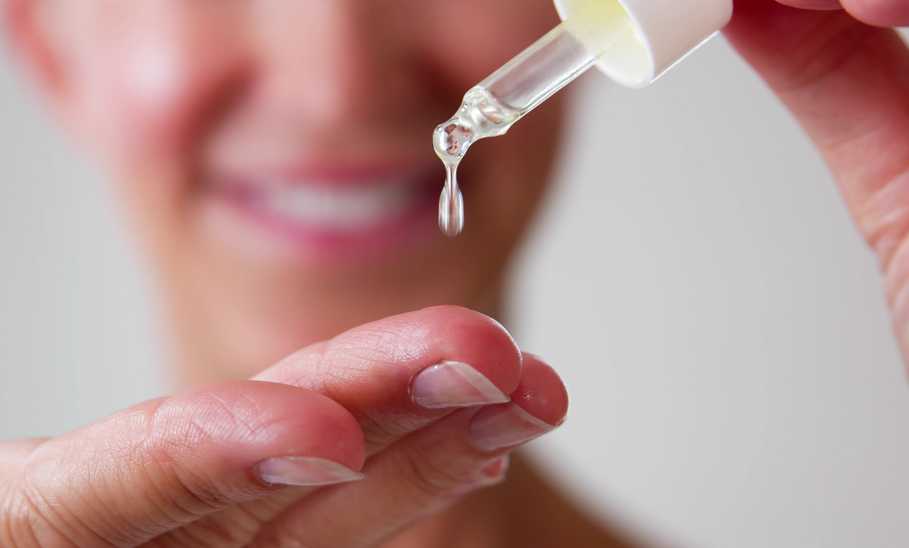
Our evaluations and opinions are not influenced by our advertising relationships, but we may earn a commission from our partners’ links. This content is created by TIME Stamped, under TIME’s direction and produced in accordance with TIME’s editorial guidelines and overseen by TIME’s editorial staff. Learn more about it.
Many anti-aging serums include superstar ingredients like retinoids, which incorporate vitamin A as their active age-defying ingredient. Retinoids are widely used—and proven to be effective—in promoting cell turnover, stimulating collagen production, exfoliating and clearing clogged pores, fading pigmentation, and enhancing the overall appearance of dull skin.
Selecting the right product can be challenging as there are various forms of topical vitamin A available, such as retinol, retinal, and retinyl esters. These forms convert to retinoic acid upon contact with the skin. Retinoic acid, which is a type of retinoid, can only be obtained through a prescription.
Dr. Andrew Ordon, a board-certified plastic surgeon in Beverly Hills, California, says, “Retinoids, including retinol, facilitate collagen production and cell turnover, reinforcing the skin's resilience. Consistent application of these products is crucial for potential effectiveness.”
Because some vitamin A products can cause irritation and have an unpleasant odor, paying attention to the concentration of the product, which ranges from 0.1% to 1%, as well as the other ingredients present in the product, is crucial. Refer to dermatologist recommendations to find the ideal retinol serum for your skin type.

L’Oréal Triple Power Anti-Aging Moisturizer is our pick for the best drugstore moisturizer with retinol for dry skin. It's fast-absorbing, non-sticky, and fragrance-free, making it safe for sensitive skin types. Triple Power contains pro-retinol, which is a “gentle, stabilized derivative of retinol.” While it isn't as potent as serums, it's still an excellent choice for gentle and effective treatment.
A fantastic hydrating retinol at an even better price.

This formula contains a 1.0% concentration of vegan retinol and superfood-rich ingredients to reduce the appearance of fine lines, wrinkles, and sun damage. Vitamin F is comprised of two fatty acids that help with moisture, and combined with passionfruit, apricot, marula, and jojoba oils work to hydrate your skin. The cream also includes antioxidant-loaded kale, winter cherry, and more to restore and protect your visage.
A nutrient-rich formula with vegan ingredients to reduce fine lines, wrinkles, and sun damage.

CeraVe is a popular brand famous for its affordable but effective products. Its latest offering is a retinol serum that costs less than $25 with calming ingredients like niacinamide and ceramides. This serum uses encapsulated retinol that gradually releases its beneficial properties over an extended period. It contains licorice root acid, ceramides, and niacinamide, all of which help restore the skin's barrier and soothe the skin.

With over 10,000 reviews on Amazon, this La Roche-Posay anti-aging serum with Vitamin B3 is a highly recommended skin serum. Users have reported an improvement in skin texture, decreased fine line visibility, and a more dewy and resilient appearance.
Fans swear by this serum to reduce lines, wrinkles, and sun damage with pure retinol and vitamin B3.

Retinol is a potent ingredient that can help you achieve clearer skin by preventing and treating acne. Differin acne gel is a sought-after product with over 78,000 verified Amazon ratings, and it goes beyond simply treating acne by also reducing inflammation. This makes it an effective solution for addressing various skin issues, such as pimples, blackheads, and clogged pores.
This acne-focused retinoid serum has over 4.5 stars — acne-fighters love it!
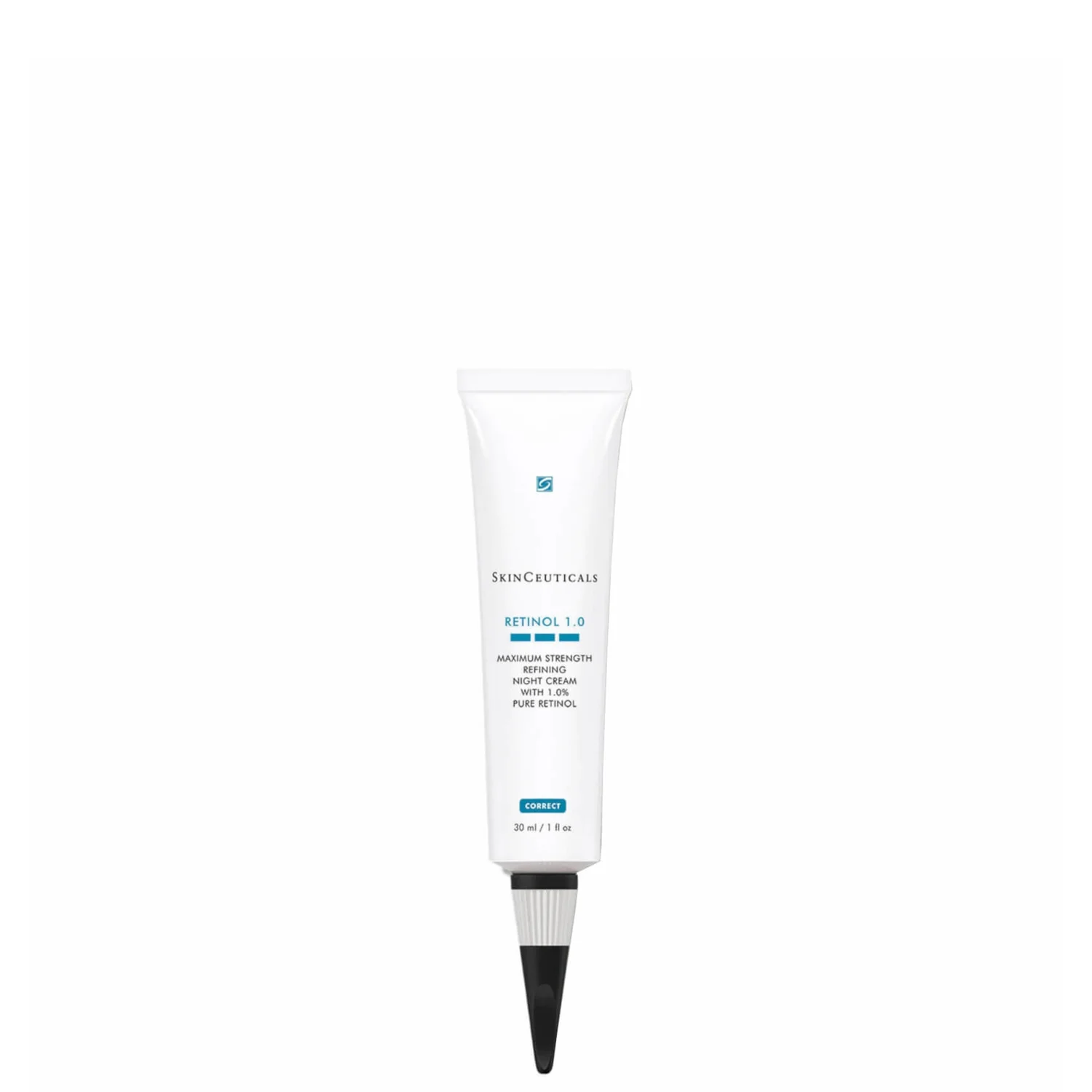
SkinCeuticals is a famous brand dermatologists favor for its advanced products with active ingredients. Despite being labeled as a night cream, the retinol treatment has a texture that differs from the thick creams you might find on your vanity. This lightweight lotion has a serum-like consistency, which allows it to penetrate the skin quickly. It might have a hefty price point, but with this formulation, a little goes a long way.
A luxurious cream that can help improve dull skin and fine lines.
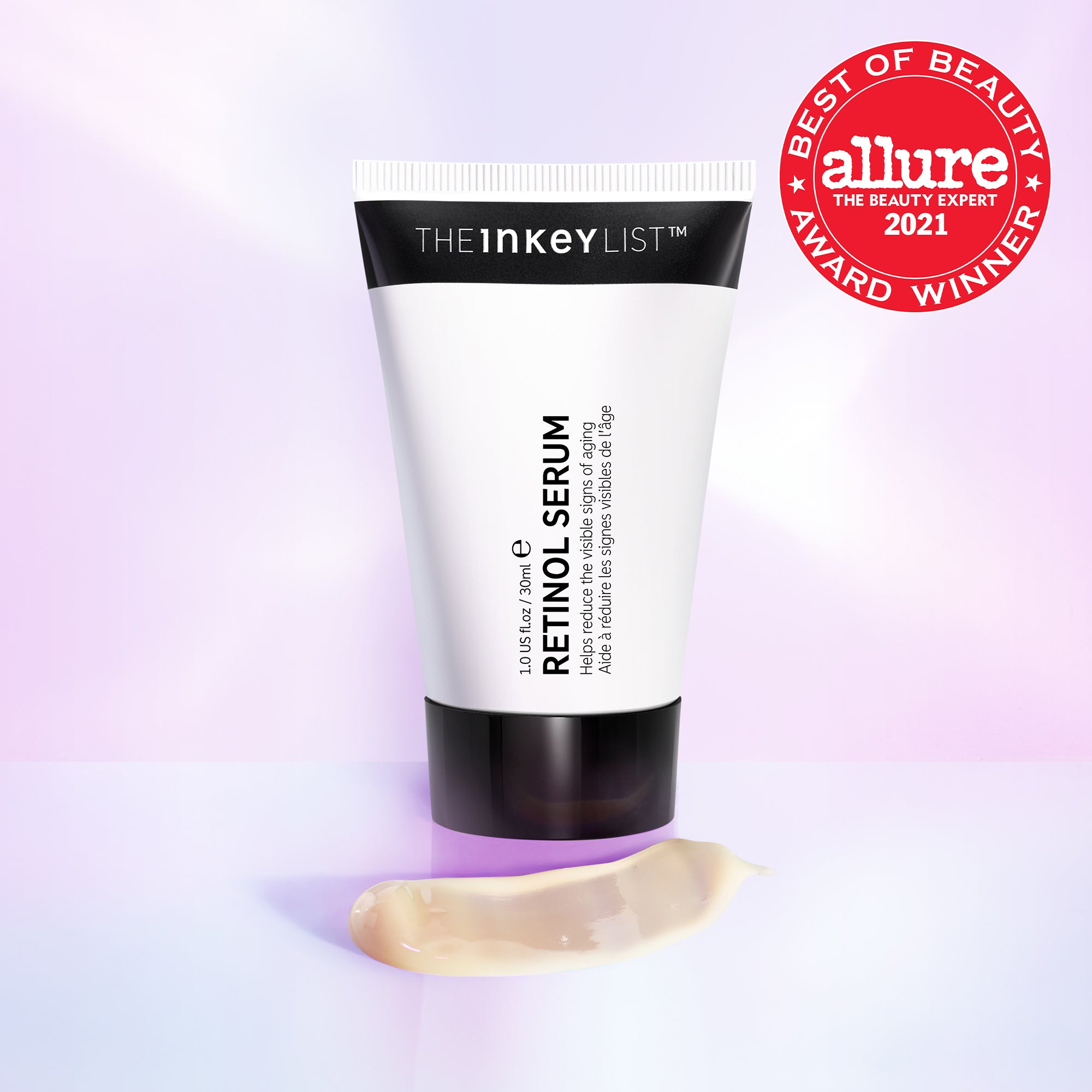
This 1% retinol serum has a slow-release formula that targets early signs of aging and hyperpigmentation, without causing irritation. The retinyl acetate gently resurfaces skin cells while squalane hydrates the skin.
This 1% retinol serum has a slow-release formula that targets early signs of aging and hyperpigmentation without causing irritation.

Consider the affordable serum from The Ordinary for a simple skincare routine. This 0.5% retinoid formula contains a squalane base, to amp up your treatment level without unnecessary additives. The added oil layer prevents scaling and irritation.
A strong retinol brought to you by budget-friendly brand, The Ordinary.
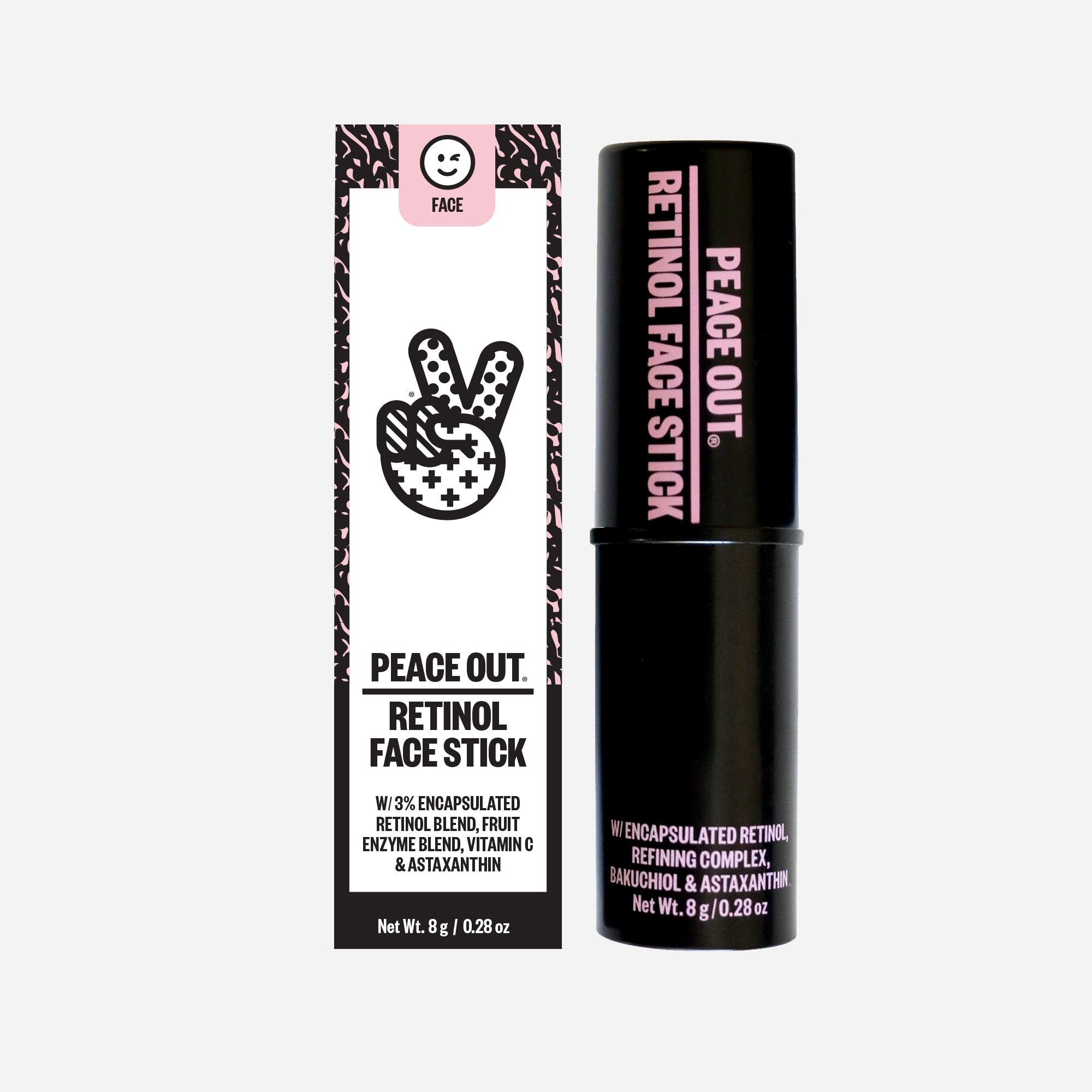
I’ve been using this stick for quite some time to help with milia under my eyes. It’s an easy-to-use, water-free balm that aims to reduce fine lines and wrinkles and even skin tone. I love the application—just swipe the stick over your face and neck nightly.
This power-packed retinol under-eye serum balm is perfect for spot-targeting fine lines and dull skin, just follow up with your favorite eye creams.
Want hydrated, radiant-looking skin without using retinol? This lightweight serum contains skin-loving ingredients like squalane and vegan bakuchiol, a natural retinol alternative. Add it to your daily routine for a more youthful complexion.
A great plant-based alternative that competes with retinol.
Retinol comes in different forms including serums, tinted moisturizers, gels, and creams. So it’s important to consider the formulation based on your skin type. Serums can deliver the active ingredients deeper into the skin for faster results. However, people with sensitive skin may experience irritation when using serums. Retinol creams are a better option in this case as they’re gentler on the skin and provide moisture and hydration. This makes them ideal for those with dry and sensitive skin.
Verify the concentration of retinol formulas to guarantee optimal effectiveness. The conversion of retinol to retinoic acid is ten-fold, and therefore it’s recommended to use a concentration of stable retinol between 0.25% to 1%. Such concentrations are known to convert to about 0.025% to 1% retinoic acid, a concentration typically prescribed for use on the skin.
Dr. Daniel Yamini from Visthetic Surgery Institute and MedSpa in Los Angeles, California says, “The ideal concentration of retinol use has to be customized for your skin. Typical concentrations are 0.3%, 0.5%, or 1%. Most people should start at the lowest percentage and work their way up over time to the highest percentage, adjusting the frequency of use to ensure that they do not develop excessive skin irritation. The optimal percentage will depend on your skin type and skin sensitivity; most people will be able to find the right percentage if they progress gradually and allow their skin some time to adjust.”
The American Academy of Dermatology Association advises that retinoids not be used during pregnancy. In addition, they recommend that people with “moderate or severe scarring…should see a board-certified dermatologist before they try a retinol.” Also, while retinoids can be beneficial for people of all skin color, “people with darker skin need to be especially vigilant about whether a product is causing irritation…as irritation can trigger hyperpigmentation," said Sonia Badreshia-Bansal, M.D., F.A.A.D on the AAD website.
Retinol is a potent ingredient that can reduce fine lines, wrinkles, and dark spots. However, its strength can cause skin irritation. To avoid this, use the sandwich technique by applying a layer of moisturizer, then the retinol product, and another layer of moisturizer to create a barrier between the skin and the retinol. Apply most retinol formulas in the evening, as retinol can cause sun sensitivity. To counter this, applying a mineral sunscreen during the day is essential when using retinol as part of your skincare routine.
This isn’t about luxury aesthetics. Retinol is highly sensitive to light and air, so choose products that come in air-tight, opaque packaging. Pay attention to the packaging to ensure the formula remains effective. It's important to always keep the product sealed and avoid leaving the lid off when it's not in use to minimize air and light exposure. By following these recommendations, you can be sure your retinol formula will maintain its potency.
In my search for retinol creams and serums, I sought out products that boast high-quality ingredients, are free of artificial ingredients, and have a significantly extended shelf life.
I searched for affordable retinol creams and serums with positive reviews, prioritizing those with the highest ratings and industry approvals. Additionally, I chose products that target specific skin concerns for optimal anti-aging results.
Retinols can be an investment in your skincare routine, so I looked for the best retinol creams and serums that offer good value for money.
To prevent dryness and redness caused by retinols, slowly incorporate them into your nighttime skincare routine. Begin by using retinol every other day for the first two weeks. If you don't encounter any adverse reactions, you can then switch to using it every other night.
Retinol serums can exfoliate your skin, speed up cell renewal, and help your skin produce more collagen. These types of serums are known to unclog pores, minimize the appearance of fine lines and wrinkles, and give skin a more youthful and refreshed appearance. If you’ve been researching tretinoin vs retinol, you might find that retinol is often considered the best option for its anti-aging and skin-clearing benefits.
To use retinol effectively, follow these steps: Apply on a clean face and if using the sandwich method described above for sensitive skin, apply after moisturizers but before sunscreen. Cleanse your face gently, avoiding any other exfoliants. Apply a small amount of retinol to your face, starting at your neck and moving upward toward the cheeks and forehead. Avoid contact with eyes, nose, and mouth. Dr. Yamini and Dr. Ordon recommends finishing by applying a non-comedogenic moisturizer as retinols can be affected by the sun.
For individuals who are dealing with persistent skin concerns such as pronounced uneven skin tone and deep wrinkles, it may be advisable to consider using a cream, serum or treatment containing a high percentage of retinol. To optimize the effectiveness of the product, it is recommended to look for formulations that have a retinol percentage ranging from 0.3% to 1%, with retinol 1% being the most potent option available.
To gradually introduce your skin to retinol, it's best to start with a lower concentration, around 0.03% to 0.05% initially. Then, slowly increase the concentration over time to determine the right amount for your skin. Over-the-counter retinols can go up to 1%, while dermatologists provide stronger concentrations.
Two widely used skin care products are hyaluronic acid and retinol. If someone is unsure which one to use, they should take into account their skin type. Hyaluronic acid is the best option for those with dry skin as it provides superior moisturization. In contrast, retinol is more effective at encouraging healthy skin by stimulating collagen production. Although the two products can have several benefits when used together, it is essential to be careful about the specific formulations chosen.
The information presented here is created by TIME Stamped and overseen by TIME editorial staff. To learn more, see our About Us page.

